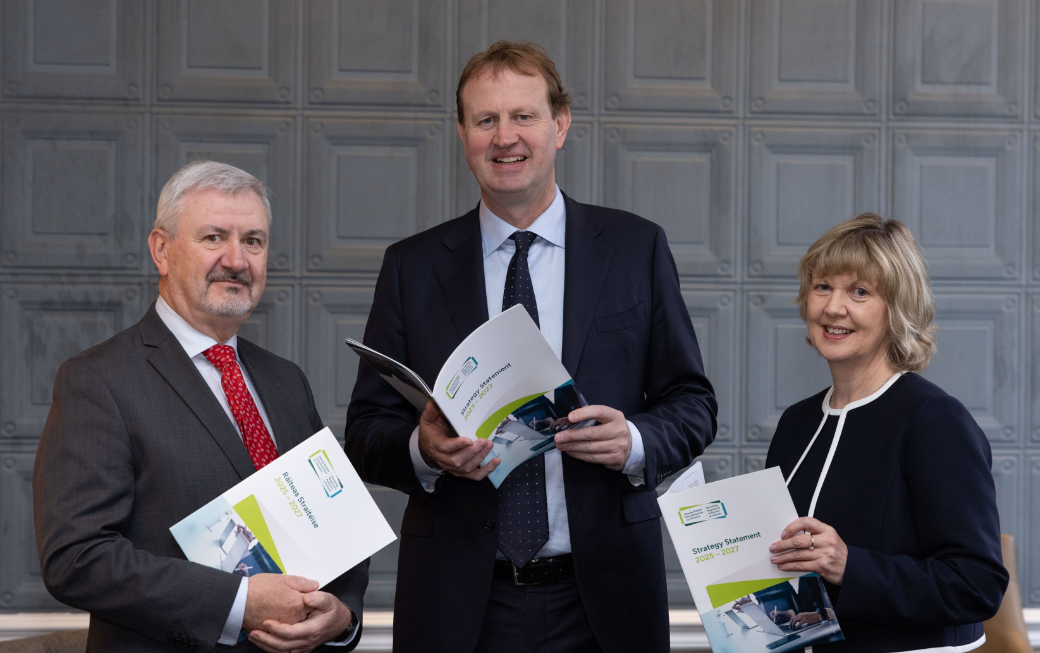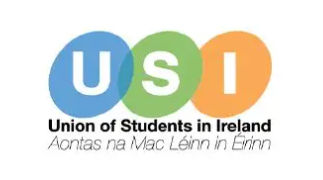The Gambling Regulatory Authority of Ireland
We are Ireland's new regulator for gambling, gaming, betting and certain lottery activities.

Popular links


Information for licensees

Latest news
See the latest news >
GRAI launch 2025-2027 Strategy Statement
15 October 2025 – The Gambling Regulatory Authority of Ireland (GRAI) today published its Statement of Strategy for 2025 to 202...
Read more >
GRAI teams up with USI to consult on the National Students Survey
The GRAI over the past number of months has been assisting and consulting with the Union of Students in Ireland on the 2025 National Student Sur...
Read more >
Report on the National Stakeholder Consultation regarding Social Impact Fund...
This report represents the findings of a national stakeholder consultation commissioned by the Gambling Regulatory Authority of Ireland (GRAI) i...
Read more >
15 October 2025 – The Gambling Regulatory Authority of Ireland (GRAI) today published its Statement of Strategy for 2025 to 2027, setting out its strategic priorities over the next three years as it establishes a robust regulatory and licensing regime for the gambling sector and delivers on its public protection mandate.Established on a statutory basis in March 2025, the Gambling Regulation Act 2024 sets out the framework and legislative basis for the GRAI which will operate as an independent, self-financing regulator under the remit of the Department of Justice, Home Affairs and Migration.Minister Jim O’Callaghan TD, Minister for Justice, Home Affairs and Migration launched the new Strategy alongside Mr Paul Quinn, Chair of the Authority, and Anne Marie Caulfield, CEO of the GRAI.The Statement of Strategy sets out the GRAI’s priorities over the next three years with particular focus on six functional areas with related strategic goals reflecting the GRAI’s legislative mandate:1. Licensing2. Monitoring and Compliance3. Enforcement4. Consumer Protection and Awareness5. People, Organisation, and Governance6. Digital First Each goal is supported by objectives and deliverables which will guide the GRAI’s progress through to 2027.Jim O’Callaghan TD, Minister for Justice, Home Affairs Migration said: “I commend the Gambling Regulatory Authority of Ireland on the publication of its first Statement of Strategy, which is an important milestone for the Authority, the gambling sector in Ireland and for the wider public.“This strategy is not just about regulation; it is about educating the public, protecting those vulnerable to gambling harm, and ensuring that the industry operates to the highest standards of integrity and social responsibility. As Minister for Justice, Home Affairs and Migration I am committed to supporting the Authority in delivering on its mandate.”Paul Quinn, Chairperson of the GRAI, said: “As a newly established independent regulator, we have been entrusted with a vital public mandate: to ensure that gambling in Ireland is conducted in a safe, fair, and transparent manner, with the interests of individuals, families, and the wider community at its heart.“Our work is grounded in the principles of prevention, protection, and evidence-based regulation. This Statement of Strategy sets out the roadmap to delivering a modern, fair, and trusted regulatory regime that reflects the constantly evolving nature of gambling and the expectations of the Irish public.“Establishing the new licensing arrangements, compliance management, and enforcement functions during the term of this Strategy is central to reducing the likelihood of gambling harms and will underpin a well-regulated gambling market in Ireland.”Anne Marie Caulfield, CEO of the GRAI, said: “The Statement of Strategy outlines the vision, mission, and values of the Regulator through to 2027. Each goal within the Strategy outlines a thorough approach to our main functions, from building a robust licensing regime that will ensure operators are consistently adhering to standards to supporting research and educational initiatives that enhance our capabilities as a Regulator”.The GRAI’s Statement of Strategy 2025 – 2027 has been approved by the Minister for Justice, Home Affairs and Migration and we look forward to achieving our strategic goals together.”The full Statement of Strategy can be viewed here: English version / Irish version

The GRAI over the past number of months has been assisting and consulting with the Union of Students in Ireland on the 2025 National Student Survey. This is a very important piece of work and the results of the survey will inform policy for the students union and the regulator. Researchers at Aontas na Mac Léinn in Éirinn (formerly Union of Students Ireland -USI) and the School of Biomedical Sciences at Ulster University have developed this online survey to investigate gambling behaviours, drug use, and mental health in third level students on the Island of Ireland. The survey takes approximately 15 minutes to complete and consists of the following sections: a demographics section, a section on gambling behaviour, a section on drug use, and a section on mental health. Ethical approval has been granted by the School of Biomedical Sciences Ethics Filter Committee at Ulster University. This study is completely anonymous. There is an optional prize draw to thank you for your participation. If you would like to be included in that draw, you will be given the option to be taken to a different website at the end of the survey to enter your details to ensure that the information you provide in the survey remains anonymous.You can take part in the survey here

This report represents the findings of a national stakeholder consultation commissioned by the Gambling Regulatory Authority of Ireland (GRAI) in partnership with Pobal, to inform the strategic direction of the new Social Impact Fund. The fund represents a critical opportunity to deliver a coordinated, system level response to gambling-related harm in Ireland and to address the longstanding gaps in prevention, treatment and recovery supports.This consultation marks the first stage in the development of the fund’s investment strategy. Its purpose was to identify priority areas for action drawing on the lived, professional and organisational experiences of those most directly affected by or working to address gambling harm.A broader public consultation, including input on the structure of the statutory annual contribution from licensed gambling operators will follow. The findings presented here reflect the views and insights of consultation participants and do not represent prevalence data or formal evaluations. Recognising the escalating scale and complexity of gambling-related harm in Ireland, the consultation was designed to provide a grounded, context specific needs analysis. Five tailored stakeholder questionnaires were completed by 162 respondents and five focus group workshops engaged 54 participants across key sectors. These included individuals with lived experience of gambling addiction, affected family members, gambling counsellors, residential and community-based treatment providers, NGOs and academic researchers. This mixed-methods approach generated rich qualitative insights to inform the national strategy. Findings across all groups highlight a strong consensus that while valuable work is underway, the national response to gambling harm remains limited in scale, inconsistently coordinated and marked by service and policy gaps. The absence of a dedicated national framework and unified referral pathways were recurring concerns. Participants viewed the Social Impact Fund as a foundational mechanism to strengthen infrastructure, address service gaps and invest in sustainable responses.Read the full report: here